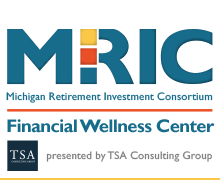Introduction to Certificates of Deposit

How CDs Work
A Certificate of Deposit (CD) is a low risk investment vehicle offered through banks. CDs offer a fixed interest rate with a promise to return both your principal and the interest it has earned at a specific time and stated interest rate. The term, or maturity, of most CDs ranges from six months to five years, though CD investments can last longer or shorter.

Choosing a CD
CDs are available through almost any bank. However, interest rates vary from institution to institution. Since CDs are a very safe investment and since maturities are similar from bank to bank, the most important factor you must evaluate in choosing a CD is the interest rate offered by the lending institution.
Generally speaking, the longer the maturity of the CD, the higher the interest rate. You may choose to shop locally, calling local or regional banks for their current rates, or you may contact a stock broker to get quotes from across the country. Of course, the broker may charge a fee for placing the investment, but may also be able to identify higher interest rates on such investments.
Taxation of CD Interest
Interest earned on Certificates of Deposit if fully taxable. It is reported on form 1040 as interest income in the year it is earned, not necessarily distributed. This means that if you purchase a three year CD, you will pay interest each year on the interest being earned in the account, even though you will not have access to the investment or interest until the three years are up.
Advantages of CDs
- You can base your CD maturity on your specific investment objectives
- The interest rate is higher than on many accounts of similar risk
- The interest rate if fixed, allowing you to plan precisely your investment payout
- When purchased directly from a bank, you pay no fee
- If interest rates go down, your CD rate stays higher
- Your investment is insured by the FDIC up to $250,000

Disadvantages of CDs
- Your rate could be changed if your bank is bought by another bank
- Early withdrawal penalties exist if you do not hold your CD to maturity
- Your investment is not “liquid” if interest rates increase, your CD rate stays lower
CDs in Your Portfolio
A strong argument could be made for CDs in your portfolio if you are looking for a safe, federally insured, fixed interest rate investment with a known maturity date.
Material discussed is meant for general illustration and/or informational purposes only and it is not to be construed as tax, legal, or investment advice. Although the information has been gathered from sources believed to be reliable, please note that individual situations can vary therefore, the information should be relied upon when coordinated with individual professional advice.
Article from CalcXML.com
